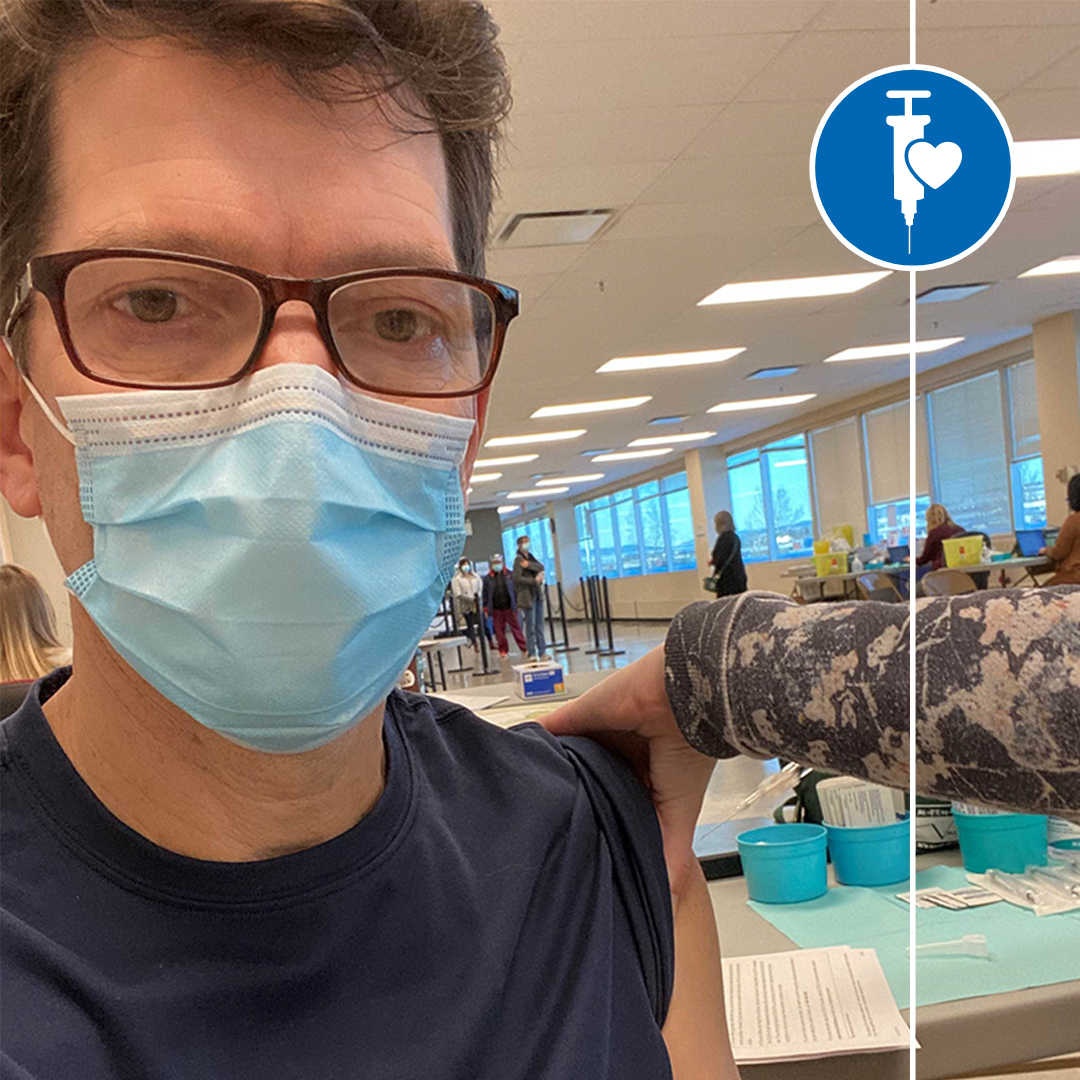Answering your COVID-19 vaccine questions

There is a lot of communication out there about the COVID-19 vaccines – some good and some bad. It’s critical to have the correct information about the vaccines so you can make an informed choice when it comes to getting vaccinated.
Here are fact-based answers to some of the questions being circulated about the COVID-19 vaccines:
Question: Does the COVID vaccine cause infertility?
Answer: This is NOT true. Catching COVID-19 while pregnant is very risky for a pregnant person and can hurt both the parent and the child. It is recommended pregnant women get a COVID-19 vaccine.
Q: Have people died from the COVID vaccines?
A: According to numerous Federal Drug Administration and Pfizer documents no one died from the COVID vaccines. Four people died in the placebo group and two people died in the vaccine group from their chronic health conditions such as heart disease and stroke.
Q: Do the vaccines cause blood clots?
A: Instances of blood clots are extremely rare with the AstraZeneca vaccine. The global frequency has been estimated at approximately 1 case/100,000-250,000 doses. Anyone infected with COVID is much more likely to experience a blood clot from COVID than from the AstraZeneca vaccine. The benefits of getting this vaccine are far greater than the risks.
Q: Does mRNA alter your DNA?
A: This is not possible. DNA lives in the nucleus of your cells and has a double layer of protection. The mRNA stays in the cells cytoplasm that surrounds the nucleus and cannot enter it.
Q: Is it true if I’ve had COVID already or if I’m healthy I don’t need the vaccine?
A: People who have had COVID are considered immune for 90 days after. There have been cases of reinfection for people who have already had COVID and studies show a vaccine induces a better immune response than a natural infection such as catching COVID.
Q: Do the COVID vaccines cause COVID?
A: The vaccines cannot cause COVID since you are not introducing the whole virus into the body. The Pfizer and Moderna vaccines use mRNA technology, which delivers genetic instructions for our cells to make viral proteins themselves. The body then begins to train itself to fight these proteins, building its immunity to the same protein found in COVID-19.
The Oxford-AstraZeneca vaccine was built using a kind of virus called an adenovirus, which causes colds in chimpanzees. The adenovirus is altered to carry a gene for the coronavirus protein, which can then train a person’s immune system to recognize the actual coronavirus if it ever enters the body.
No current vaccine can cause actual illness because the viral components used are too weak to do so.
Q. Can the COVID vaccines cause autism?
A: No vaccine has EVER caused autism. One falsified study claimed vaccines cause autism but that has been disproven in the medical community.
Q: Do the COVID vaccines cause Antibody-Dependent Enhancement?
A: Antibody-Dependent Enhancement is a very uncommon phenomenon where antibodies make the disease worse (like Dengue Fever). This does not happen with COVID.
Q. Can COVID vaccines cause autoimmune diseases?
A: No, vaccines do not cause autoimmune diseases. COVID can have serious outcomes for people with autoimmune diseases which is why it’s important to be vaccinated.
Q: Do allergic reactions mean the vaccines are unsafe?
Vaccines rarely cause allergic reactions and even if you are one of the rare cases you can get treated quickly. People who receive the vaccine need to wait 15 minutes before leaving the site to ensure there are no adverse effects. If you’re concerned about previous vaccine reactions, talk to your doctor.
Talk to your doctor
If you’re concerned about vaccine efficacy or side effects – talk to your doctor. They will be able to provide you with up-to-date information to help you choose which vaccine is right for you.
For more information about COVID-19 vaccines and the vaccine rollout visit:
